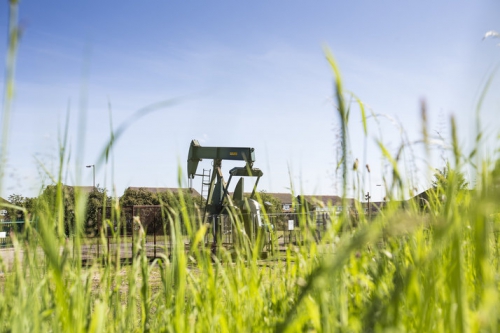IGas In Talks to "Strengthen Balance Sheet"
IGas, a leading UK shale gas explorer which successfully negotiated farm-outs to Total and chemicals group Ineos since early 2014, admitted June 14 it needs further farm-outs, asset sales or bond extensions in order to "strengthen its balance sheet" in the current low price environment.
Updating investors, it said it has a “carried work programme of up to $255mn” for shale exploration thanks to its farm-outs, and expects to spud two such carried wells in 1H 2017. It noted that another shale explorer Third Energy recently won planning consent to frack and test an existing well.
Conventional production guidance for full year 2016 remains 2,500 - 2,700 barrels of oil equivalent per day (boe/d), IGas said, with its operating costs for 2016 around $30/boe. Cash on the balance sheet as at 31 May 2016 was £23.6mn.

IGas has small-scale conventional oil production at Gainsborough, Lincolnshire in the UK (Photo credit: IGas)
IGas said it “has been in discussions with its leading bondholders with a view to extending the maturity of the debt, deferring certain interest payments and the waiver of some financial covenants on the basis that further finance comes into the business.”
It acknowledged “discussions with a number of potential investors and continues to evaluate options for cash and earnings accretive transactions including farm-outs and other asset portfolio management opportunities. These discussions are intended to achieve a capital structure that is sustainable in the current oil price environment.” It said the potential exists to increase production by about 700 boe/d, net of decline, by January 2018.
Mark Smedley


